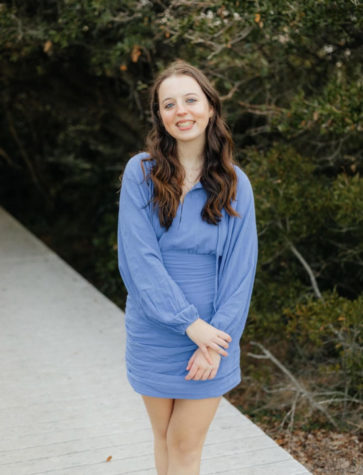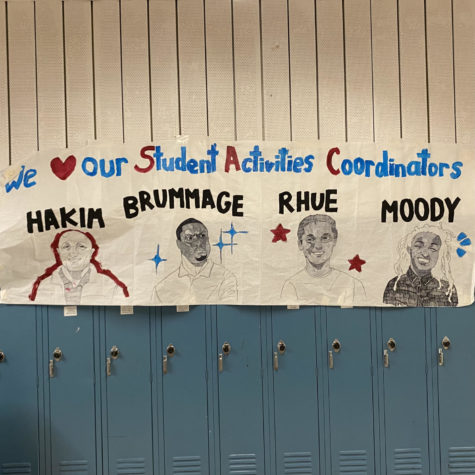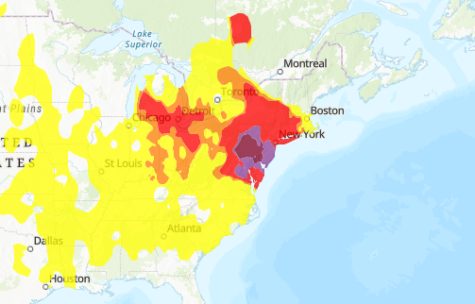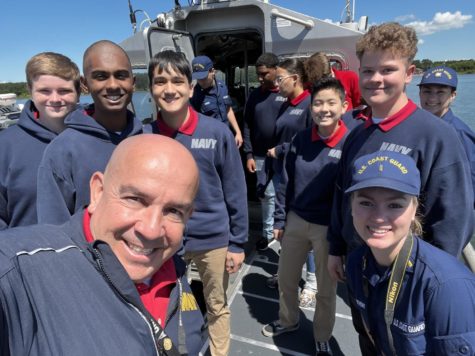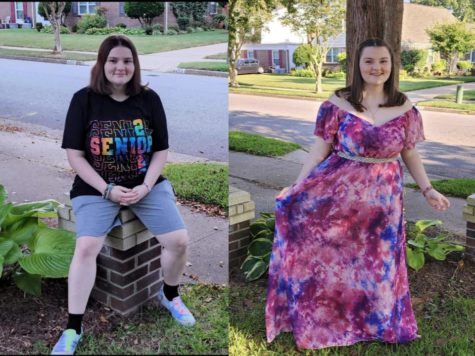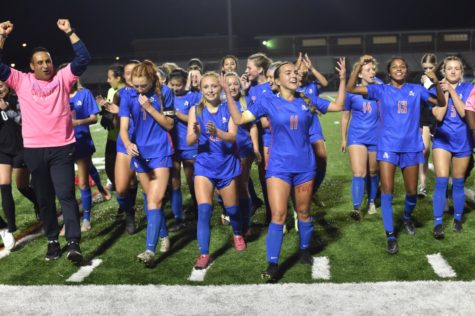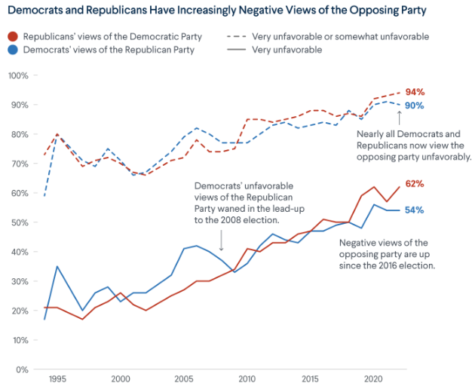Virtual learning: A vice or win?
September 11, 2020
Sophomore Anna Royse stayed up late most summer nights watching movies with her cat; naturally, she did not wake up early the next morning. One July afternoon she awoke to a faint knocking on her door. It was her mom, saying it was time for Royse to decide whether she would return to school when it was deemed safe or attend school virtually for the first semester.
Groggy and half-awake, Royse decided she needed some time to make her final decision.
Royse said when she first heard the news, “Option Two seemed like the sensible thing,” and that is what she chose. But after the August 12 deadline, rumors spread about the details of the two options, and she started to doubt her decision.
During the last quarter of her freshman year, Royse commented that “…No one really knew what to do,” and, “there were a lot of technical difficulties.” She does not want a repeat of last year’s period of virtual learning, but she may be stuck doing just that.
With the 2020-2021 school year having already begun, many VBCPS students are not sure what to expect, given last year’s experiences with virtual learning. After Virginia governor Ralph Northam declared the mandatory shutdown of all area public schools, students and teachers found themselves in an unprecedented situation. Effective immediately, all teaching and learning would occur online.
According to freshman biology teacher Ashley Karunaratne, she and fellow educators had little time to prepare for the emergency learning period that spring. Some teaching methods lent themselves more seamlessly to online learning.
“I felt a little more prepared because I used Schoology and other digital platforms extensively in my classes before this happened,” said Karunaratne. “The transition was not as hard on teachers who already used technology in their classes.”
Even with teachers working hard to prepare and modify course content delivery, students nevertheless encountered difficulties with online learning. Sophomore Ava Bell said, “Many of the links were confusing or did not work and activities seemed pointless.”
Although there were many technical difficulties, she said the flow of online learning had improved by the end of the year. Bell observed that “many teachers had figured out how everything worked, which really allowed students to effectively complete the work while actually learning something.”
Rising sophomore Kenza Zitouni remarked, “The teachers worked very hard to accommodate us, but something about the platform was really inefficient.” Additionally, she noted the toll the adjustment took on her motivation, and continued to describe her attempt at “…trying to learn new things, and then just giving up. Falling back into a rut after a period of productiveness.” She found this to be an unrewarding cycle.
Teachers were also more difficult to contact compared with when students were physically attending school.
Bell commented, “Students were unable to tell when teachers would post their assignments, and it could be difficult to contact the faculty.” Asking teachers questions was not as simple as raising a hand in class anymore.
“If you [needed] help, you [had] to email them, and you don’t know how long it will take for them to respond,” said senior Mohammad Assad.
Even in a face-to-face learning environment, many students have a hard time with motivation. Students have a lot going on with school, sports, clubs, and personal life. All these activities combined make for pretty busy days.
“Self-motivating yourself can be difficult, especially when you are in your bedroom doing work three feet away from your bed,” said sophomore Brooke Cunningham.
Adjusting to the new “normal” was a big part of going completely virtual. Not only did students have to stay motivated and keep up with their work, but teachers also had to make lesson plans and be sure students were completing and turning in assignments.
“I would say 75 percent of my students completed work on time. Then another 10-15 percent completed it after I sent a reminder message to the students and their parents,” Karunaratne explained in an email. Karunaratne has had smooth sailing for the most part but “only had a select few students not engage. However, I know other teachers did not have similar results and fewer students completed assignments.”
Teachers were told they were not permitted to grade any assignments last virtual year. Many students felt this regulation contributed to their lack of motivation.
“There was not any homework, nothing was graded, and there were no tests or quizzes, so I could not retain information and could not focus and keep enough motivation for the whole week,” said Cunningham.
Students started to sink to the deeper depths of procrastination because “the teachers didn’t really care when you turned it in as long as you turned it in,” said Assad. “I always turned it in a week later.”
The fight to stay motivated only grew worse because “it didn’t really feel like school,” said senior Olivia Galbreath. “It was definitely a crazy time.”
Sophomore Collin Smith shared similar sentiments, stressing the urgency of in-school learning. He wrote via email, “I hope we can have in-person school ASAP because I don’t think most people will have a lot of motivation to do work from home.”
It appears the key for this new school year is the time the teachers had to prepare for going completely online compared to last year.
“Most of the teachers did the best they could with the little time they were given for preparation. Many quickly found resources, recreated lesson plans, and discovered new ways technology can be used in education,” said Bell.
It is the hope of many students that by having the whole summer to adjust and plan, teachers should have more effective lessons to teach their students.
“The teachers should definitely be able to handle online education better because they’ve had time to prepare stronger assignments and are able to give grades, which ensures that students will actually complete the work and attend Zoom meetings,” Bell said.
Cunningham said, “…Teachers will handle online better this year because they have had the whole summer to prepare. Last year’s learning was completely unexpected and the teachers were rushing to get things done.”
“I feel better prepared for this school year, especially with respect to holding live class sessions on Google Meet and Zoom,” said Karunaratne. Although she has some worries about this year’s schedule, she is more concerned about the pace at which the classes will go.
Assad believes virtual learning will be rushed because of the new schedule, especially for AP and senior IB students.
“It’s a lose-lose situation,” said Asaad. Having AP/IB classes in the first semester means “you won’t have constant learning of that subject” to prepare for the spring exams. Even if students have AP/IB classes second semester, it will be a “rushed” class, according to Assad.
Sophomore Ure Emejuru thinks the school system is planning efficiently for this school year, but feels that not all students are being heard and accounted for.
Emejuru wrote via email, “Some [students] thrive through internal motivation and can work on their own, while some have such horrible home environments that virtual learning will be a struggle.”
VBCPS announced that high schools will remain virtual for at least four weeks, 9th graders able to return to school on October 6 if Virginia Beach Covid-19 cases remain in the “yellow zone.”
According to WTKR, VBCPS classifies this zone as a “test positivity rate” between 5% and 10% for 14 days, “with more than 10 per 100,000 new cases per week, based on a rolling seven-day average.”
Once 9th graders return to school, VBCPS superintendent Aaron Spence decided higher-grade level high school students may return to school after another two weeks if still in the “yellow zone.”
“Honestly, I think it’s an overreaction having us stay closed,” said sophomore Dominic Pizzini, who transferred to PA from Ocean Lakes this year. He thinks coronavirus will not pose a large threat to students in the school building based on what other countries have experienced.
Regardless of Covid-19 perspective, Emejuru sees this situation in a positive light, writing, “I am excited to see what the future holds.”

